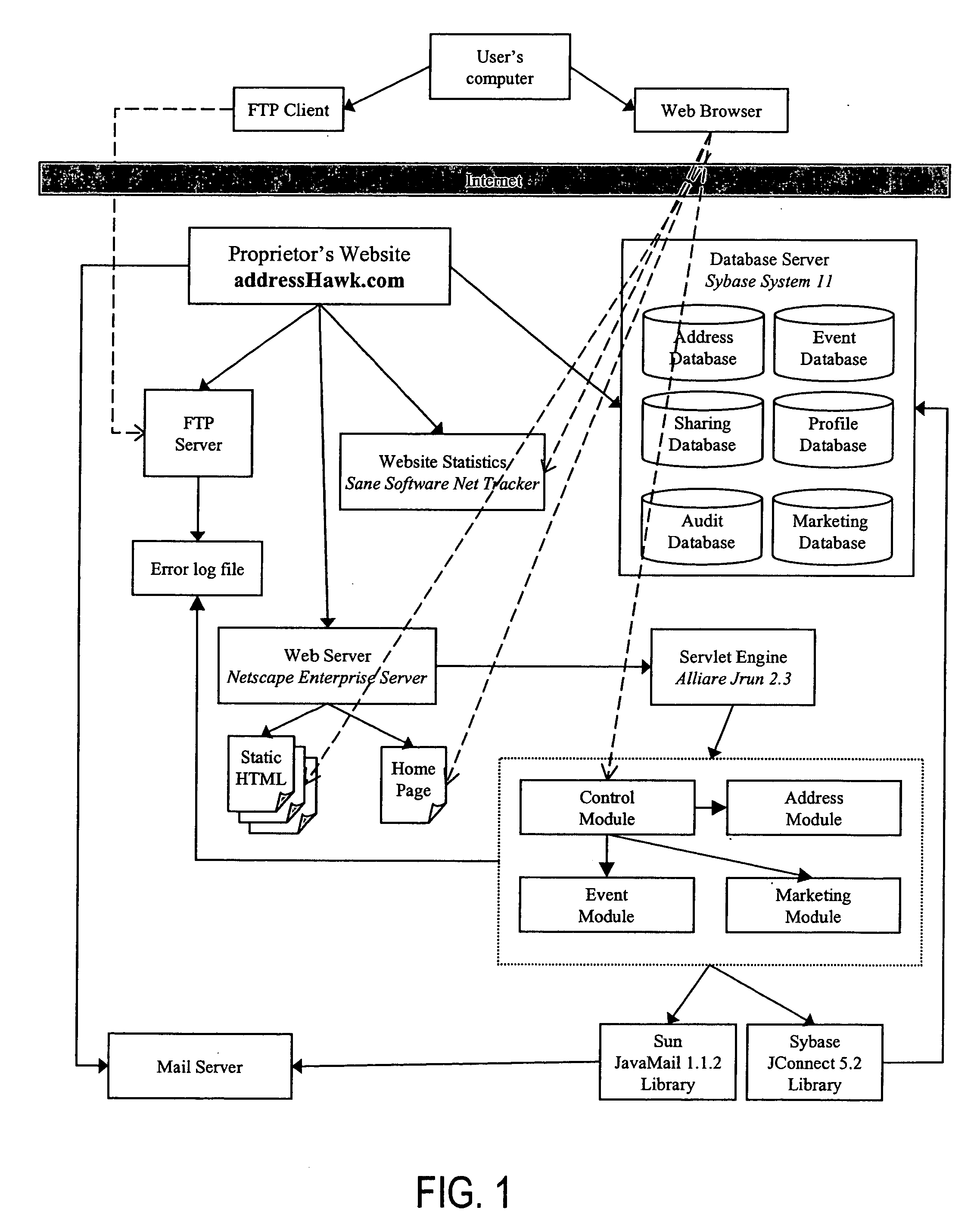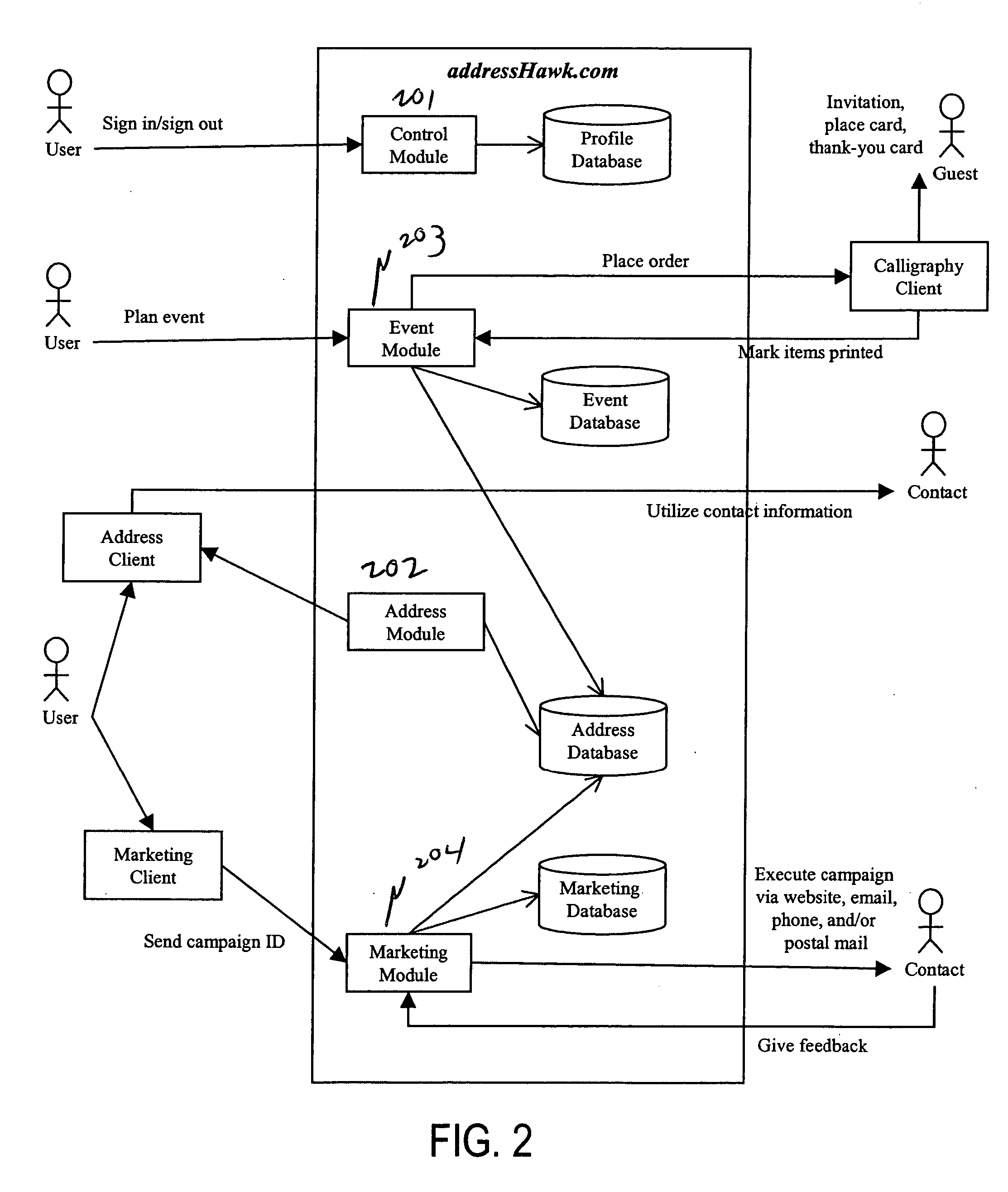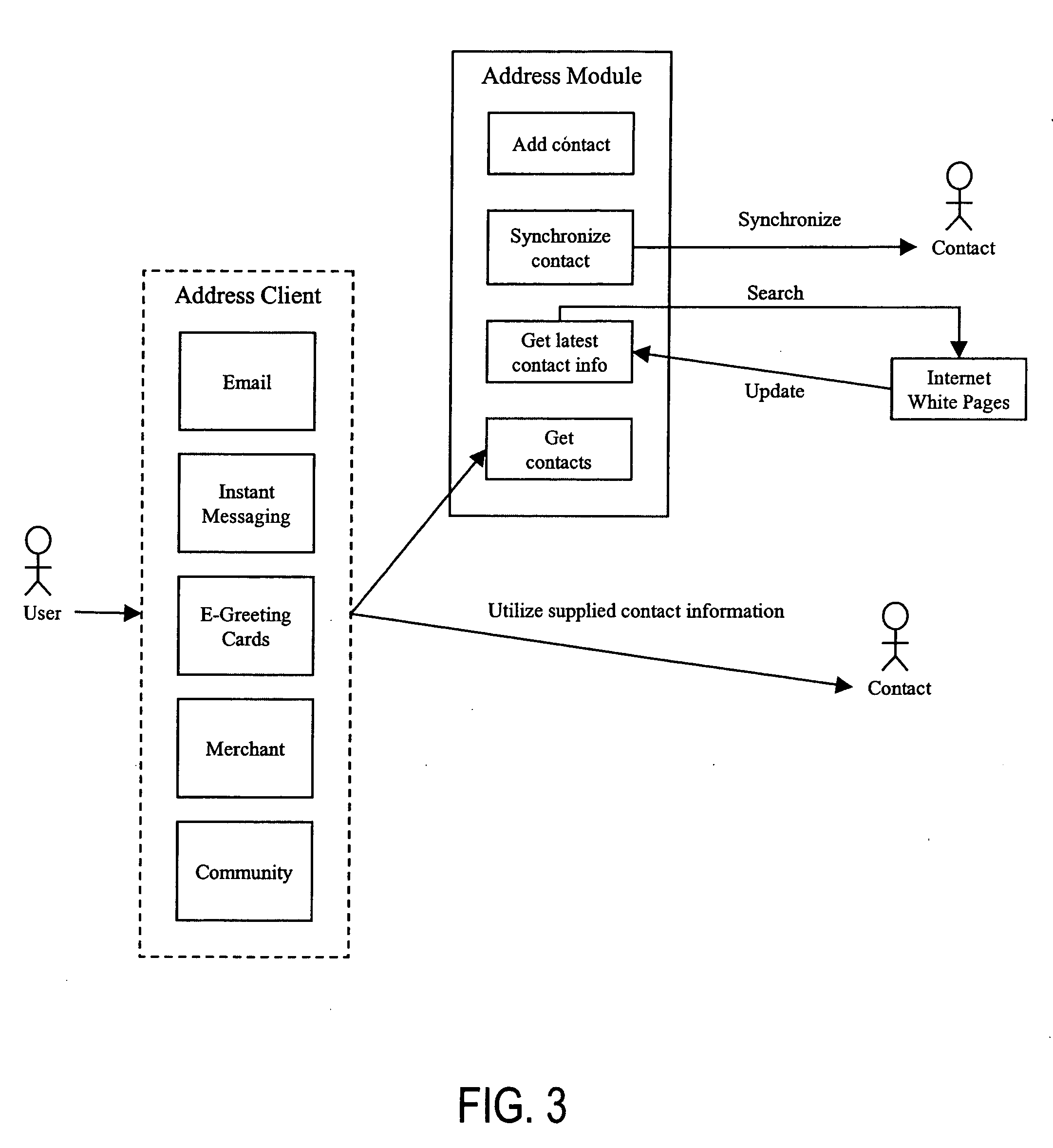Although there are more and more ways for people to communicate with each other, it has become more and more difficult for people to keep track of each other's contact information.
A person's address book becomes out of date whenever someone in it moves or changes jobs.
However, they do not make adequate use of the contact information contained within.
Additionally, they do not have provisions for users to share their address book with each other.
Consequently, people that use current address book solutions are unable to use it to its full
advantage.
Event planning is a time-consuming arduous ordeal that include many tasks, such as: creating a guest
list, locating and verifying addresses, tracking RSVP, printing invitations, creating a seating chart, printing place cards, tracking gifts, and writing thank-you cards.
Although there are many websites that allow people to manage this process, they have many deficiencies, including: (a) only one person can plan an event because they do not contain a security model and audit log; and (b) can only be used for informal events because the invitations are only sent by email.
However,
software products have the following deficiencies: (c) the fact that multiple users can not collaborate and plan an event together is especially limiting for formal events such as weddings because it is usual for the bride and groom and their families to plan the event together; (d) is effectively limited to one event per
software installation and does not allow for reporting across multiple events; (e) requires duplicate address information that is stored for guests; (f) does not automatically apply rules of etiquette when addressing invitations, place cards, and thank you cards; (g) cannot automatically search
the Internet for the guest's
email address, phone number, and mailing address and copy the information into the guest
record if found; (h) people have to call their guests to verify their mailing address and the spelling of the guests' (and all children's) names.
Even if a user did it once, he still has to do it again for the next event, because the guest may have moved or family status may have changed; (i) guests' addresses and phone numbers are not automatically updated from the marketing industry's databases; (j) A family member cannot easily reuse a person's guest
list; and (k) there is no infrastructure for 3rd party venders to be able to plug into to provide products & services that utilize the guest
list.
Another problem faced by companies, is that with the increasing popularity of
the Internet and the
World Wide Web, it has become increasingly difficult for companies to market their product and services effectively.
Although people may be interested in products and services that companies have to offer, they suffer from
information overload and have no way of sifting through the information that is thrown at them.
The same problem exists for email because people are inundated with so much unsolicited email (“spam”) that they delete it without ever reading it.
Email may be cheap to send, but the cost of sending unsolicited email is that it damages the long-term relationship between the marketer and the
consumer.
In some cases, it may be even illegal or unethical to target certain people (e.g., children.)
There is no way for
mass marketing campaigns to accomplish this because: (a) it is not cost-effective to try to quantify what every
consumer is interested in.
In fact, it may be impossible; (b) have no way of taking family status into account.
In some cases, both spouses should be targeted; (c) Permission marketing (“opt-in”) programs, in which people can choose to receive marketing email on selected topics that is of interest to them, does not solve the problem either because: a. many people treat opt-in programs as disguised spam and will never sign up, b. a person will not always take the time to adjust their selected topics when their interests change, especially if it is for a
short duration, c. a person may not even realize that he is interested in a particular topic because of semantic differences, d. people are very complex and it is difficult to classify all possible combinations of interests that a person may have (e.g., a person may be only interested in old films that star a particular actor, but the opt-in program will just having a topic called “Movies.”), e. the programs must adhere to the request of the user.
If a person only deals with reputable websites and requests that they do not give out his
email address, there is no way for the opt-in programs to target this person, and g. Because of these problems, many companies have been forced to market their product and services through television,
magazine, and newspaper advertisements which can be prohibitively expensive.
 Login to View More
Login to View More  Login to View More
Login to View More 


